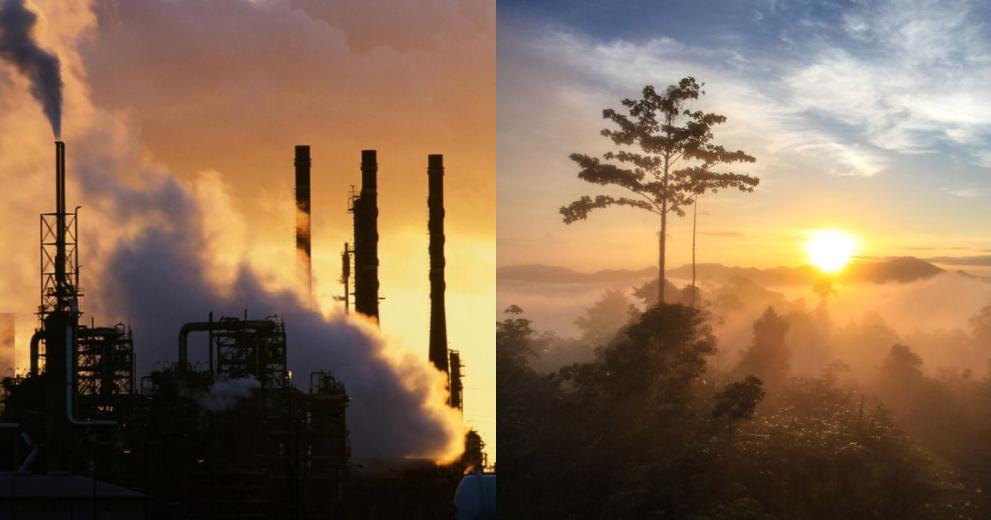Climate Change; The Clock is Ticking and Why It Matters.

We have to realize that climate change is no longer a threat in the future, it is an immediate reality. It is an extremely important topic that we need to address now.
But before we go any further, have you heard of the Boiling Frog myth?
It states that if a frog is dropped in a boiling pot of water, it jumps out instantly since it won't be able to handle such a high temperature.
However, if you have the same frog in a pot of lukewarm water and heat it at a leisure pace, it stays there happily until it eventually dies. This is since it gets used to the temperature and becomes unable to detect if it's too hot or not.

Now how does this relate to climate change? We can compare our approach to climate change just like the frog's approach to the increasing temperatures. We are neglecting an important problem; we are ignorant of the small changes in temperatures but as we are speaking, it is growing into an enormous problem. While it may not necessarily affect our generation, it will most certainly affect the generations to come.
| Understanding Climate change
Climate change has had a long history, beginning approximately during the 1850s with the start of the industrial revolution. According to climate.gov, the Earth's temperature has risen by an average of 0.06° C per decade since 1850. The rise of temperature hit a boom after 1942, increasing by 0.2° C per decade. It is significant to note that 2023 has been the warmest year since the global records began in 1850.
It is terrifying to realize that the Earth's temperature has risen by 1° C (royalsociety.org)
The video below can help visualize how the Earth's surface temperature has evolved since 1880.
This video is also found on NASA's scientific visualization studio
But how did we come to this?
Causes That Have Lead to Climate Change
Globally, 42 million trees are cut every day, which leads to around 15 billion trees deforested per year. We have lost around 420 million hectares of forest since 1990. Trees absorb and store more carbon dioxide than they release, which is beneficial for us. They store about 30% of carbon emissions from burning fossil fuels also known as the terrestrial carbon sink. A tree absorbs roughly 25 kg of carbon dioxide per year. However, this is also dependent on its growth; if it's fully grown or still in the growing stage. Over a lifetime of 100 years, a fully grown tree can absorb 1 tonne of CO2 gas.
- Transportation
This is an evident cause of climate change. The usage of cars, trucks, motorbikes and planes release emission. According to UN climate action, road vehicles account for the majority of the carbon emission due to the combustion of petroleum based products such as gasoline in engines. According to statista, in 2022 global carbon dioxide emission levels from cars and vans grew by around 1.4 % yearly since 2010. It has risen up to 3.5 billion metric tonnes worldwide. Carbon dioxide is a major greenhouse gas that traps heat in the atmosphere, leading to the surface temperatures increasing.
- Consumption
Our use of power in homes, consumption rates are also playing a part in the planet's temperature changing. The food we consume has to be processed, transported, consumed and at times, disposed of. Most of these steps release greenhouse gases which trap heat in the atmosphere. About 1/3rd of all human-caused greenhouse gas emissions are connected to food. Per kilogram of beef (combining beef and dairy cattle), 70.6kg of greenhouse gases are emitted into the atmosphere.
Effects of Climate Change
Climate change is having a significant impact on our lives. According to the article published by NASA, some changes such as droughts, flooding, rainfall and wildfires are occurring faster than scientists predicted. Scientists are confident that the global temperatures will continue to rise for a few more decades due to the greenhouse gases produced by human activities.
- Heatwaves
A heatwave is known as a period of unbearably hot weather often lasting more than 2 days. Heatwaves are becoming longer, more frequent and very intense due to climate change. They can have a domino effect of impacts. Extreme heat may lead to droughts, wildfires, poor air quality and power shortages in communities. It is estimated that during 2023, wildfires in Canada burned around 7.8 million hectares of land and released 3 billion tonnes of CO2 into the atmosphere.
This event has single-handedly managed to emit 640 million metric tonnes of carbon dioxide into the atmosphere.
Canadian Prime Minister Justin Trudeau and Natural Resources Minister Jonathan Wilkinson comment on the wildfires.
- Droughts
Low rainfall in various regions in the world is having an effect on communities, leading to droughts and water scarcity. According to the EU science hub, the combination of warming in the Pacific (El Niño), the positive phase of the Indian Ocean Dipole (which occurs when warm waters are pushed to the west and the cold deep waters are pushed to the surface of the eastern Indian ocean) & the warm phase of the Tropical North Atlantic have collectively contributed to intensify the droughts in South America, Southern Africa and parts of the Mediterranean and eastern Europe.
Between August 2023 to July 2024, at least 52 prolonged drought events have been detected. Food aid is very much needed in southern Africa where 30 million people are subjected to these harsh conditions. Any assistance is helpful as it will be needed especially between October 2024 and March 2025.
| What Can You Do?
While this action needs to be taken at a global level, starting individually also brings about significant changes in the bigger picture.
- Turn to public transport, or walk to places if they are close by!
- Choose fuel-efficient vehicles!
- Support local organizations that promote sustainability.
- Waste less food!
- Reduce over-consumption.
Donations







